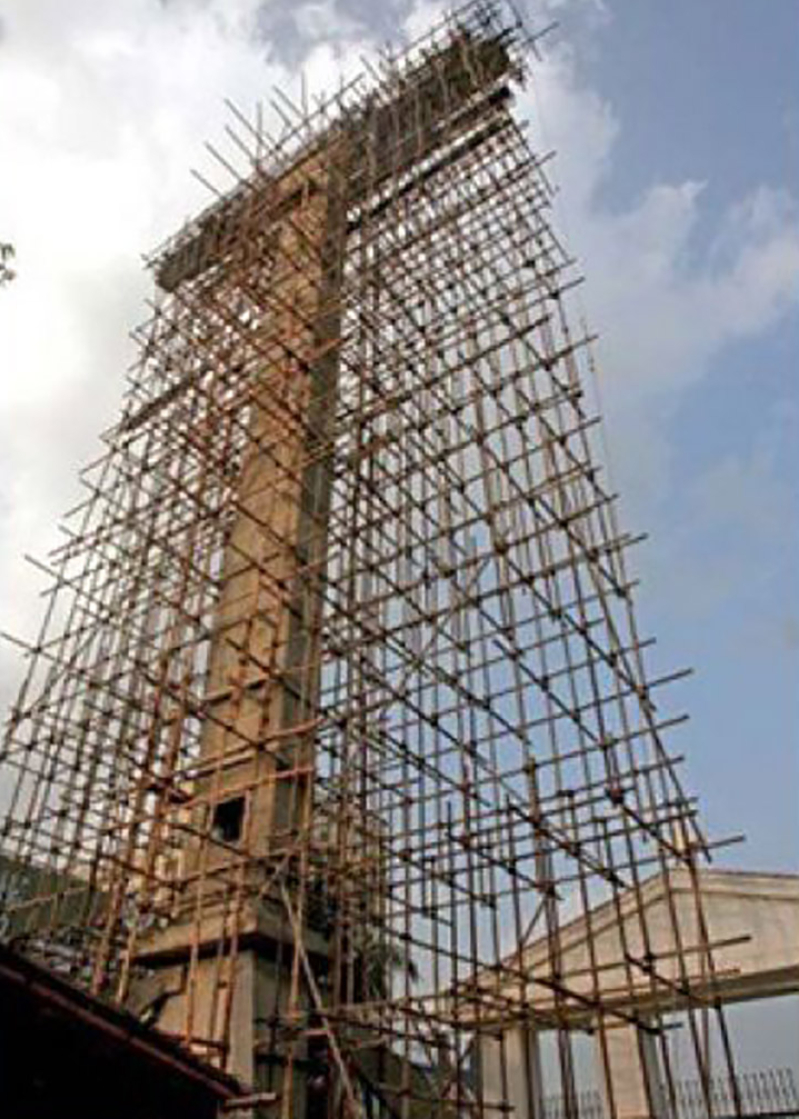
A Christian businessman in Pakistan has decided to build a 14-story cross in the heart of the country's largest city, Karachi. He claimed that God inspired him in a dream to do that job.
According to Tim Craig of the Washington Post, Pakistani businessman Parvez Henry Gill, 58, claimed that God told him in his dream to "do something different" and find a way to protect Christians in the country from violence and abuse. He eventually decided to build a large cross in an unlikely place.
"I said, 'I am going to build a big cross, higher than any in the world, in a Muslim country,' "Gill said. "It will be a symbol of God, and everybody who sees this will be worry-free."
Craig reported that the cross, which is nearly complete, is being built at the entrance to Karachi's largest Christian cemetery, known locally as the Gora Qabristan Cemetery. Christians are considered a minority group in Muslim-dominated Pakistan.
"I want Christian people to see it and decide to stay here," said Gill, who started the project about a year ago.
Gill, who paid for the cross at his own expense, told Craig that he hoped the cross would stand as a symbol for Christians in Pakistan to realize their lives will get better one day despite the persecution directed at them. Although it is not the tallest one in the world - that honor, according to Craig, goes to the Great Cross in St. Augustine, Fla. - it will serve as a significant landmark in the city and be the largest cross in Asia.
"The cross, in southern Karachi, is 140 feet tall - higher than most office buildings in downtown Washington - and includes a 42-foot crosspiece," Craig wrote.
According to Craig, Pakistan's last census indicated that Muslims made up more than 90 percent of the population, while Christians made up 1.5 percent of the country's 180 million people. However, Christian leaders disputed the government's account, noting that the real figure was close to 5.5 percent.
"Christians are also often targets of Pakistan's harsh blasphemy law," Craig wrote. "The law forbids insults of any form - even by 'innuendo' - against the Muslim prophet Muhammad and makes the crime punishable by death."
Gill admitted to Craig that he hears from Christians "every few weeks" who plan to move out of Karachi due to threats of persecution. Craig noted that signs of abuse were obvious at the cemetery.
"Look, someone just came and broke this statue of the Virgin Mary," Gill said.
According to Craig, both Christians and Muslims helped build the cross, although 20 Muslim workers did quit in protest after realizing what they were building. One Muslim worker, Mohammad Ali, referred to the cross as a "work of God" and volunteered to help build it out of loyalty to the Gill family.
"Henry has supported me well over the years, helping with the birth of my [seven] children, with medicine, their education, so I don't need a daily wage," 40-year-old Ali said.
Gill contended that the cross was "bulletproof" because it was built on a 20-foot underground base. Although other Christians have warned him about his safety, the businessman referred to the verses in Psalm 91, which according to Craig promises protection to believers.
"Tons and tons of steel, iron and cement," Gill said. "If anyone tries to hit this cross, they will not succeed."
Although Gill hoped that important people would show up, he expressed confidence that Pakistan's Christians will show their support.
"Upon seeing it, they are going to appreciate this job," Gill said.






